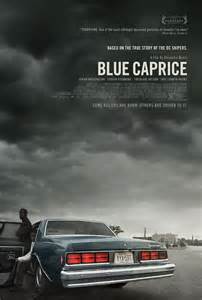One of the most fascinating aspects of the DC Sniper case is how riveted the American public remained throughout the height of it, and how quickly that fascination dissipated once the fugitives were apprehended. Now, granted, a great deal of that had to do with an overwhelming sense of relief, particularly up and down the northeast corridor, where daily commuters feared they might literally be taking their own lives in their hands. But one might also argue there was a perverse sense of letdown involved, that once it was revealed who and what the killers actually were, it came as a disappointment.
I mean, John Allen Muhammad and Lee Boyd Malvo, a lone gunmen and his surrogate son … that certainly did not live up to the soldier-of-fortune/domestic-terrorist expectations the mass media had constructed. And yet, it was the damning-and-yet-tragic truth of the matter, a truth that offered very little in the way of epilogue.
I suppose that what I’m getting at here is that the heart of the story – the meat of the story, as it were – was primarily associated with the intense grip Muhammad and Malvo temporarily held over the entire DC metro area. Given the circumstances, one might imagine that writing an intriguing screenplay regarding the tragedy should have less to do with the shooters themselves and more to do with the massive sense of intrigue … the acute sense of both horror and suspense that it aroused.
And that may very well be where Alexandre Moors’ new Blue Caprice falls incontrovertibly short. The movie is well written (by Ronnie Porto), and it’s also commendably well-acted (Isaiah Washington is particularly noteworthy cast in the role of John Muhammad). But the problem with Caprice resides in what it’s missing altogether. And what it’s missing, for the most part, is the harrowing public aspect of that entire three-week period during October of 2002. Blue Caprice is much more of a dual character study, a slow descent into hysteria, if you will. But it leaves you asking the very same question the mainstream media found itself asking once Muhammad and Malvo were originally arrested: Isn’t there anything particularly interesting about the back story of these two?
The answer, both then and now, provides a perverse sense of disappointment.
(Blue Caprice opens in New York City today, with a staggered release starting in Los Angeles and Washington, DC next Friday.)

